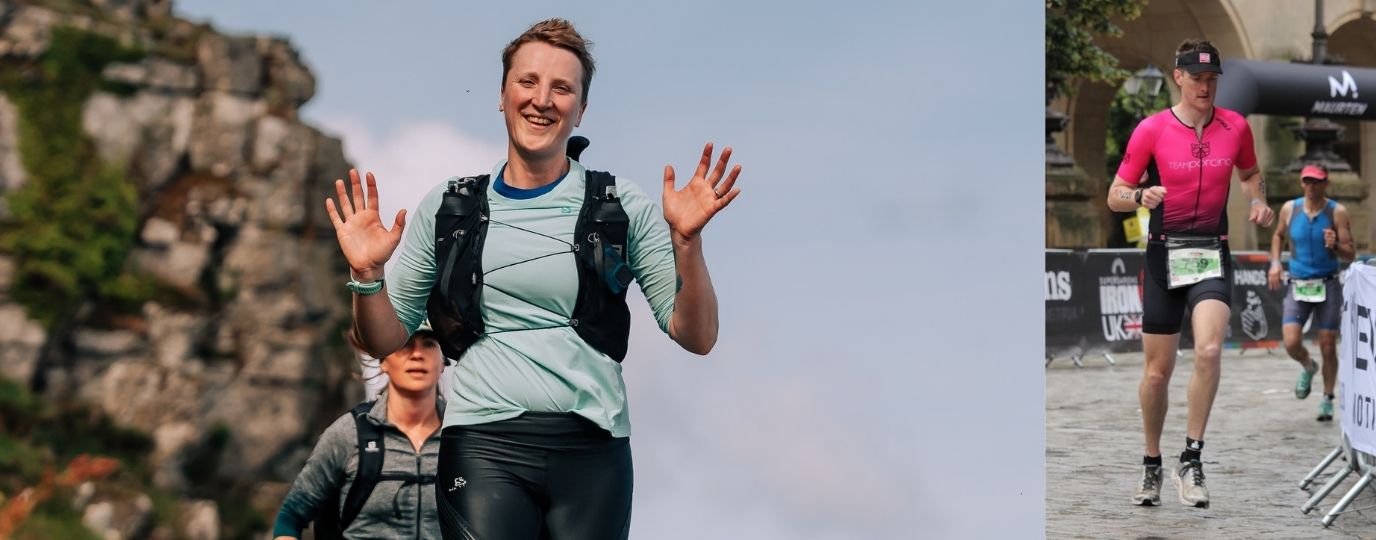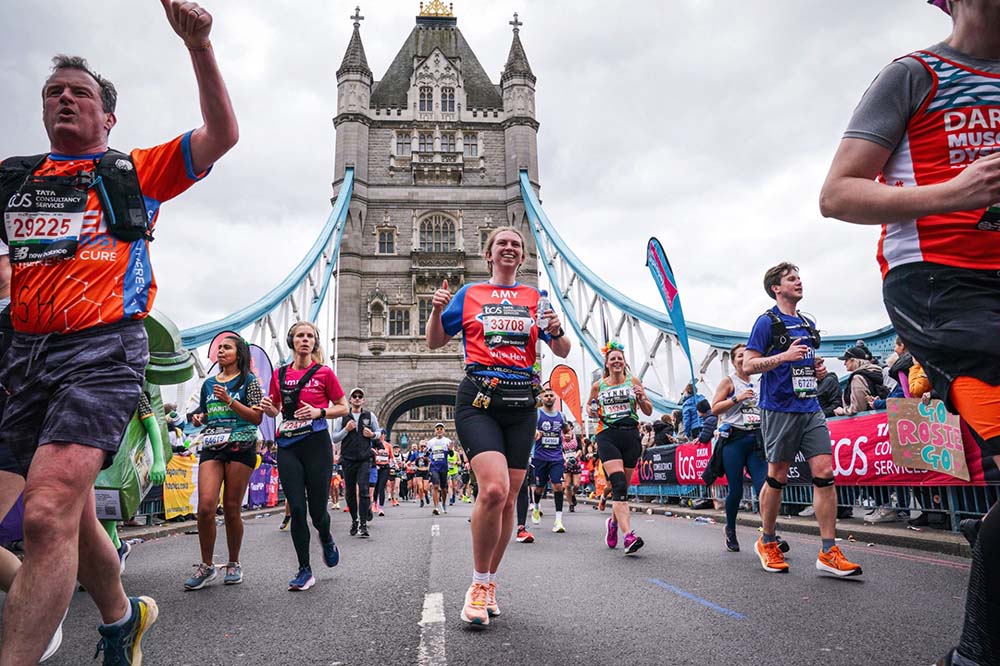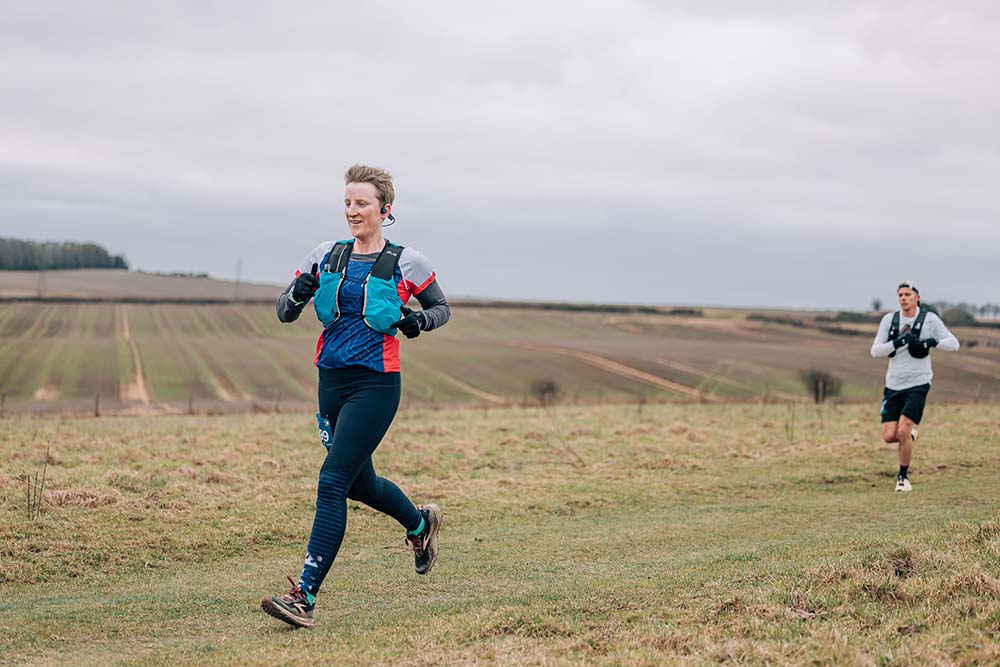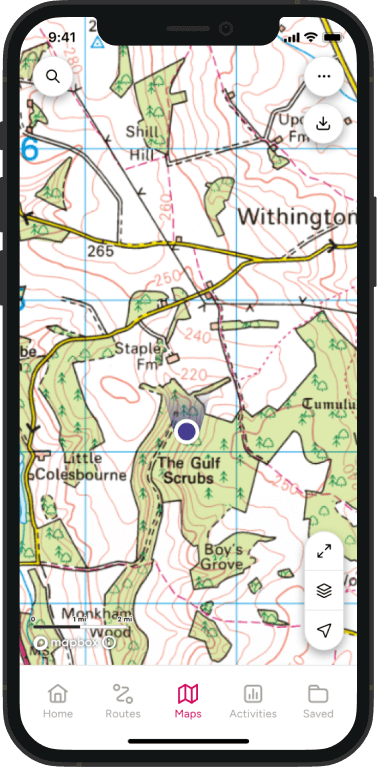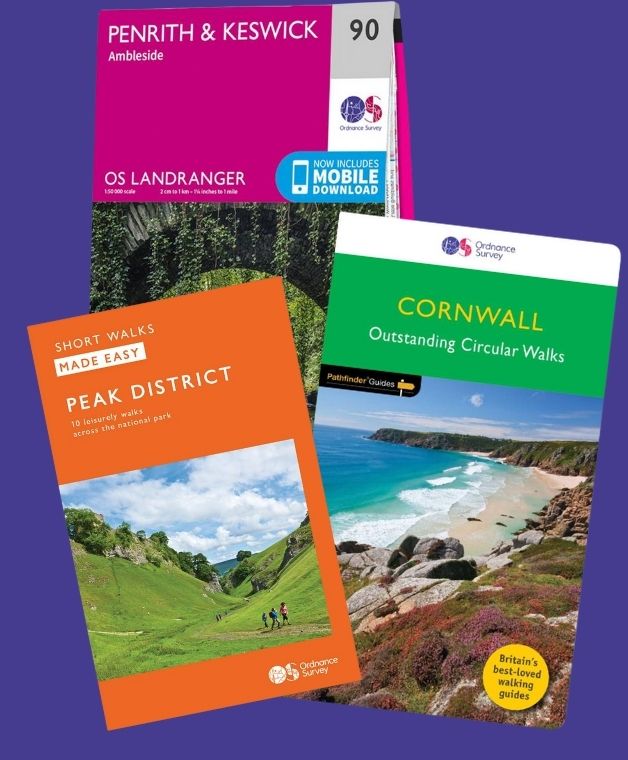The Ultimate Marathon Training Guide: Nutrition Tips for Success!
January is the perfect time to lace-up and kickstart your marathon training. With spring and summer events just around the corner, including our Partners the ABP Southampton Marathon on 6th April, it’s the ideal time to start building your endurance. In this post we will be exploring nutrition for marathon training with some great advice from our very own Ordnance Survey Marathon runners.
Whether you’re starting with short jogs or planning long weekend runs, OS Maps is your go-to tool for finding and creating training routes that match your pace and goals. (Here’s some inspiration to get you started: Best Running Routes in Hampshire)
Training for a marathon isn’t just about miles – nutrition plays a crucial role too. Fuelling properly can make the difference between hitting your stride or hitting the wall at mile 20. In this post, OS team members and OS Champions share their tried-and-tested marathon nutrition tips. From avoiding last-minute gel disasters to discovering hydration tricks and stomach-friendly snacks, we’ve got you covered.
Top Marathon Nutrition tips include:
- Eating for the miles ahead, not the miles now
- Setting reminders to refuel before you feel hungry
- Testing your nutrition strategy during training, not race day
Plot your perfect routes in OS Maps and get ready to tackle your marathon goals with confidence. And don’t forget to head over to ABP Southampton Marathon’s blog for the ultimate guide to marathon training.
Top Tips from Ordnance Survey Marathon Runners
Peter Cave – Ordnance Survey’s Lead Information Security Consultant
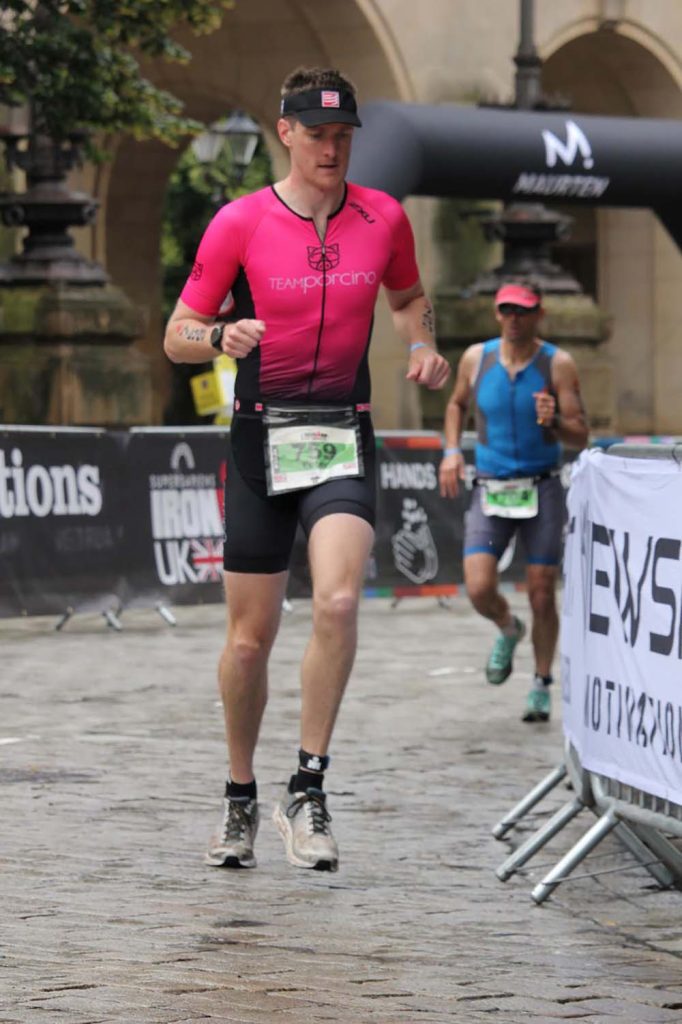
1. Train with whatever you plan to race with. Don’t try out new gels on the day unless you want to spend 10mins in the Portaloo at Mile 14 (I’m definitely not speaking from experience!)
2. Any nutrition you take will kick in at about 20-30 minutes, so eat for the miles ahead not the miles now. I usually start having something as early as 10k in.
Ella Cowen – Ordnance Survey’s Sustainability, Property and Facilities Lead
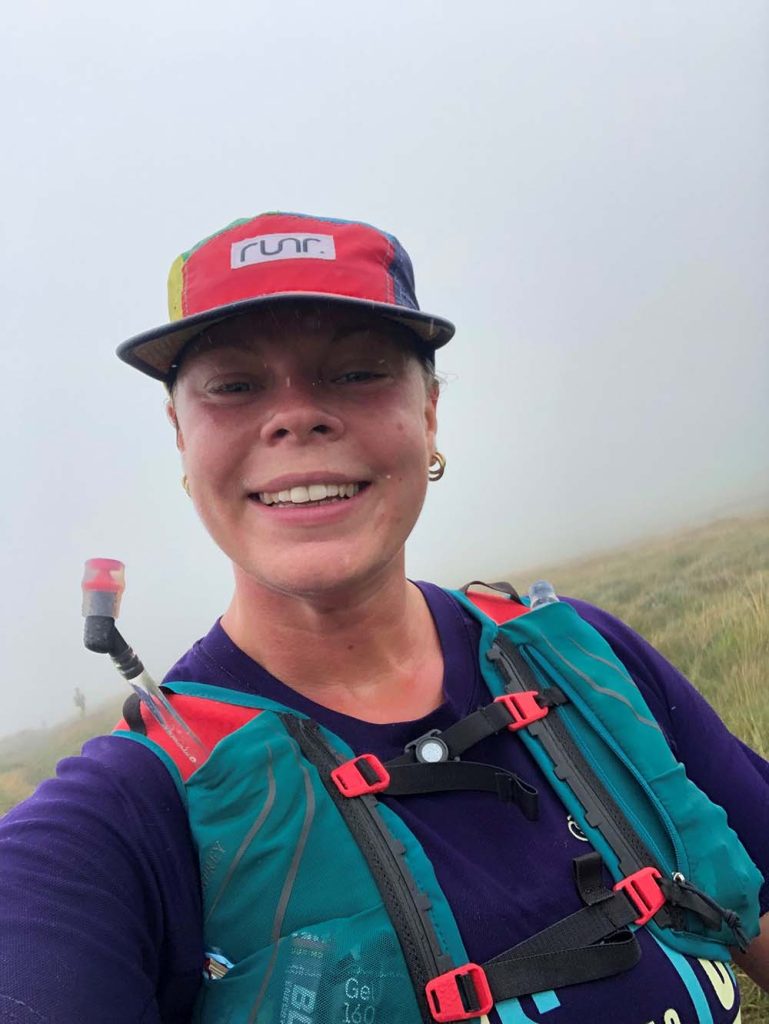
One of the hardest things to get right is nutrition – at least that’s what I found. My top tip would be to top up your fuel before you start to feel hungry. If you can, set a timer to go off at intervals (e.g. every 45 mins) to remind you to have a gel or a snack. During my ultra-marathon, I really appreciated the Tailwind nutrition sachets. They dissolve in water and provide a combination of electrolytes, hydration and carbs. It’s much easier on the stomach than trying to force down lots of solid food!
Sam Taylor – Ordnance Survey’s Competitive Intelligence Enablement Manager and OS Champion
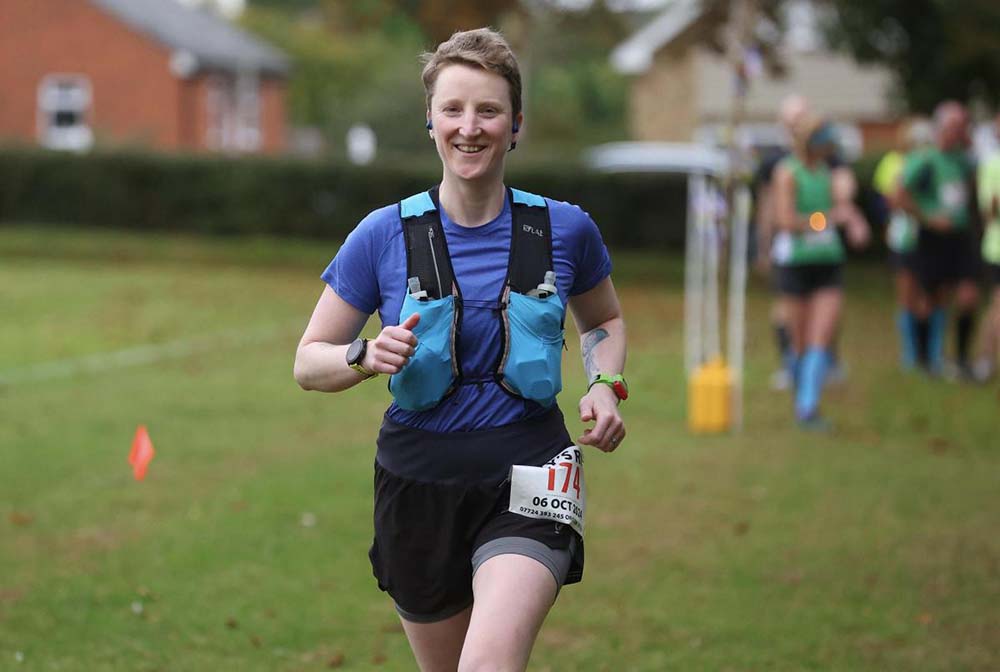
Test your race day nutrition in training, as it’s essential you find something that works for you and your stomach. Whether it’s gels, sweets or cubes of roasted sweet potato, you don’t want all your hard work to be undone by stomach cramps when your system doesn’t like the fuel while running. I like running with a pack, then I can carry all the nutrition I know works for me and have a drink whenever I want, rather than waiting to reach an aid station.
Alex Jackson – OS Champion
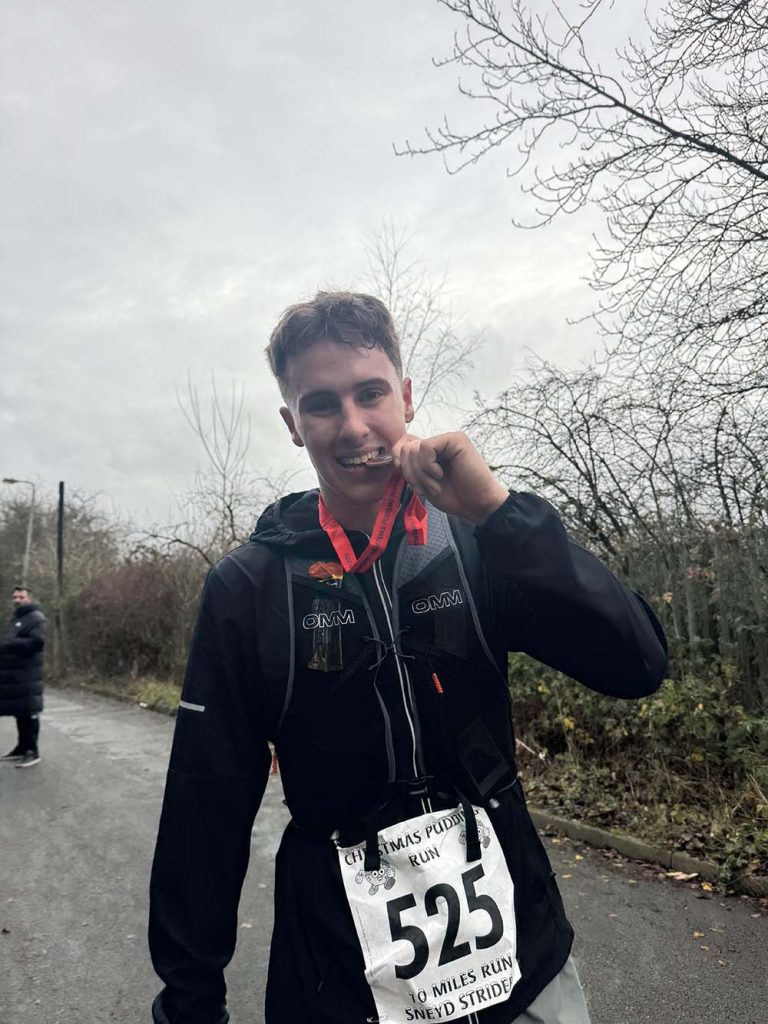
Hydration is key, when running or training in anyway. You want to make sure you’ve got electrolytes to hand. Find food that you enjoy. Get in tune with your body and find out what works for you, so keep testing!
Fuelling for Marathon Success: More Nutrition Tips for the Days Before Race Day
Proper nutrition plays a pivotal role in marathon training, especially in the crucial days leading up to race day. What you eat can make or break your performance, so it’s important to plan your meals wisely.
Do I need to carb load for a marathon?
The Importance of Carb Loading Carbohydrate loading, or “carb loading,” is a strategy to maximise glycogen stores in your muscles, ensuring you have enough energy to sustain you through 26.2 miles. Begin increasing your carb intake around 3–4 days before the marathon. Focus on high-carb, low-fibre options like pasta, rice, potatoes, oats, and bread. Aim for about 7–10 grams of carbohydrates per kilogram of body weight daily.
How much water should I be drinking while training for a marathon?
Hydration is equally vital. Drink water consistently and consider adding electrolyte drinks to maintain a balance of sodium, potassium, and other minerals. Avoid overhydrating, which can lead to hyponatremia (low sodium levels).
What should I do the day before my marathon?
On the day before the marathon, stick to foods you’re familiar with and avoid anything spicy, greasy, or high in fibre that could upset your stomach. Eat a balanced breakfast, a carb-rich lunch, and a light dinner. For snacks, opt for bananas, energy bars, or crackers. This is not the time to experiment with new foods or supplements.
Stay hydrated throughout the day, sipping water regularly. Avoid alcohol and limit caffeine to prevent dehydration.
What should I do the day on the morning of my marathon?
On the morning of your marathon, your pre-race meal should be consumed 2–3 hours before the start. Opt for a simple, carb-heavy breakfast such as toast with jam, a bagel with peanut butter, or porridge with honey. Avoid high-fat or high-protein options, as these can be harder to digest.
Keep sipping water in the morning but stop drinking about 30 minutes before the race to prevent bathroom stops early on.
Don’t Forget Post-Race Recovery
While preparing for the race is crucial, recovery matters too. After crossing the finish line, refuel with a mix of carbs and protein to replenish glycogen stores and aid muscle repair. Think chocolate milk, a protein shake, or a banana with peanut butter.
By sticking to a thoughtful nutrition plan, you’ll give your body the fuel it needs to power through the miles and make the most of your marathon experience. Good luck!
As you gear up for your marathon, remember that nutrition and planning go hand in hand. Whether you’re training for your first 26.2 miles or aiming for a PB, finding the right fuel and OS Maps
And if you’re ready to put your training to the test? Sign up for the ABP Southampton Marathon today and take on your next big challenge. See you at the start line!
